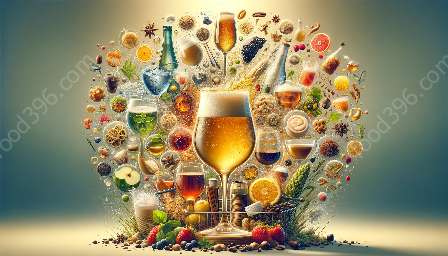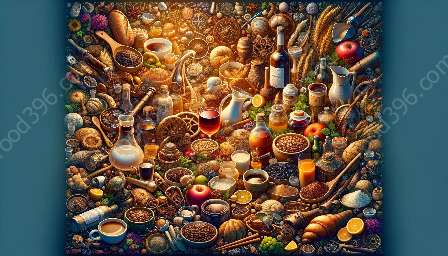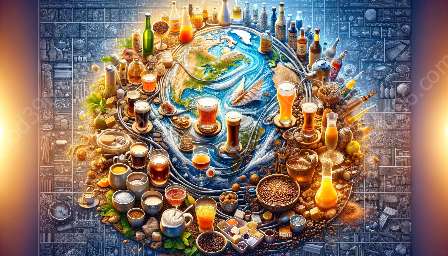Beverages hold a special place in the cultural and societal fabric of human civilization. They are not merely drinks to quench our thirst; rather, they are emblematic of traditions, social customs, and historical contexts. Embarking on a journey to understand the depth of this topic, we delve into the multifaceted landscape of the cultural and societal significance of beverages.
Historical Perspective
The historical significance of beverages cannot be overstated. From ancient civilizations to contemporary societies, beverages have played a pivotal role in shaping human history. The invention of alcoholic beverages, such as beer and wine, marked a transition from hunter-gatherer societies to settled agricultural communities. In many cultures, the brewing of beer and the cultivation of grapes for winemaking were integral to religious rituals and social gatherings.
Moreover, the trade of beverages, particularly teas and spices, fueled global exploration and colonization, leaving an indelible mark on world history. The Spice Trade Route and the Tea Horse Road are testaments to the enduring influence of beverages on international commerce and intercultural exchange.
Social Customs and Ceremonies
The serving and consumption of beverages are often intertwined with social customs and ceremonies. From the Japanese tea ceremony to the British afternoon tea, the act of preparing and sharing beverages is steeped in tradition and symbolism. Moreover, certain beverages are emblematic of rites of passage, such as the toast with champagne at weddings and the breaking of the Ramadan fast with sweetened drinks in Islamic cultures.
Additionally, the concept of commensality, or the social practice of eating and drinking together, holds immense cultural significance. Meals and gatherings centered around beverages serve as catalysts for forging and strengthening social bonds, fostering a sense of community and kinship.
Economic Impact
Beverages not only enrich the cultural tapestry but also wield considerable economic influence. The rise of coffeehouses in Europe during the 17th century not only revolutionized social interaction but also laid the groundwork for modern-day café culture. The global coffee trade, encompassing multinational corporations and small-scale farmers, has shaped economies and livelihoods worldwide.
Similarly, the cultivation and consumption of tea had profound economic ramifications, leading to the establishment of sprawling plantations and trade networks. The Opium Wars in China, in part, were fueled by the British desire to establish a lucrative market for opium, which significantly impacted the cultural and social fabric of China.
Modern Adaptations and Innovations
In the modern era, the cultural and societal significance of beverages continues to evolve, spurred by globalization and technological advancements. The emergence of specialty coffee and artisanal teas has given rise to a renaissance in beverage appreciation, with emphasis on origin, processing methods, and sustainability.
The craft beer movement, with its focus on regional flavors and small-scale production, has redefined the beer landscape, heralding an era of experimentation and consumer discernment. Likewise, the resurgence of traditional brewing techniques, such as mead-making and cider fermentation, reflects a renewed interest in reclaiming beverage heritage and craftsmanship.
Wellness and Social Movements
Beverage consumption is also intersecting with wellness and social movements, as evidenced by the proliferation of health-conscious drinks and ethical sourcing practices. The rise of plant-based milks, superfood elixirs, and organic beverages underscores a shift towards mindful consumption and environmental stewardship.
Furthermore, the advocacy for fair trade and sustainable agriculture within the beverage industry mirrors broader societal movements towards ethical consumerism and social responsibility. Beverages are not only a reflection of cultural values but also a catalyst for social change and advocacy.
Conclusion
From ancient libations to modern concoctions, beverages have weaved a tapestry of cultural and societal significance that transcends time and borders. Their influence extends beyond mere refreshment, shaping rituals, economies, and social identities. By embracing the diversity and historical context of beverages, we gain a richer understanding of the intricate web of human experience.


















